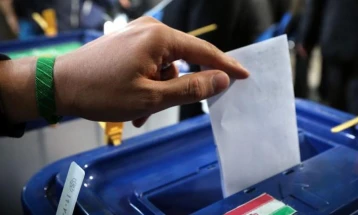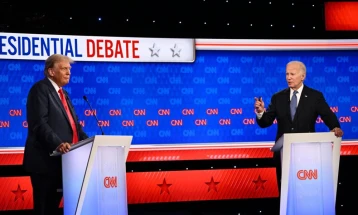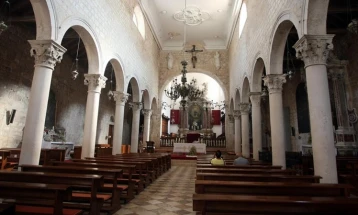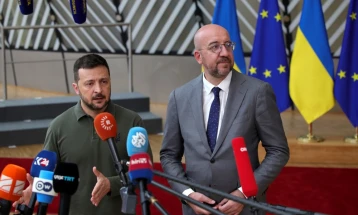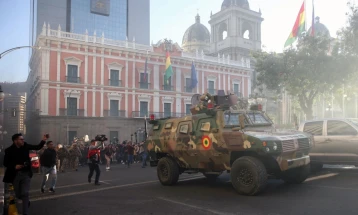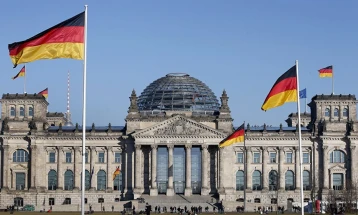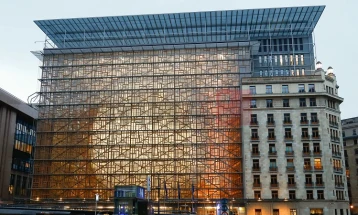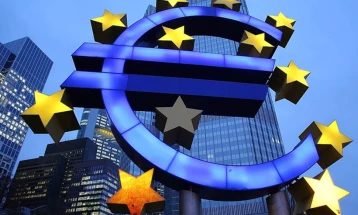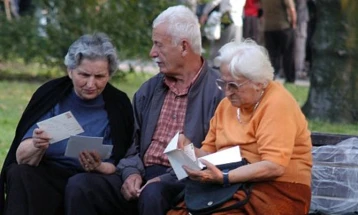EU leaders nominate von der Leyen for second term as Commission chief
- EU leaders have formally nominated Ursula von der Leyen for a second term as president of the European Commission, European Council President Charles Michel confirmed on Thursday.
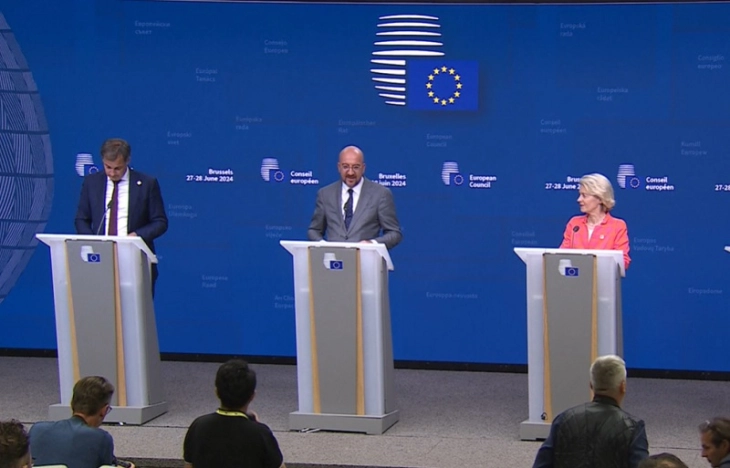
Brussels, 28 June 2024 (dpa/MIA) - EU leaders have formally nominated Ursula von der Leyen for a second term as president of the European Commission, European Council President Charles Michel confirmed on Thursday.
Von der Leyen's nomination was informally agreed on Tuesday, but the formal decision was taken at Thursday's EU summit in Brussels.
Under the deal, former Portuguese prime minister António Costa will be the next president of the European Council - the assembly of national leaders - and Estonian Prime Minister Kaja Kallas is the leaders' pick to be the European Union's next foreign policy chief.
"Kaja, Ursula and Antonio accepted," Polish Prime Minister Donald Tusk wrote on X. Outgoing European Council President Michel also took to X to confirm the nominations of von der Leyen and Kallas, and the election of Costa.
The EU leaders' endorsement does not mean von der Leyen's second term is confirmed just yet. She still needs to win the support of a majority in the freshly-elected European Parliament.
EU leaders are hoping a coalition of three political groups will secure her confirmation, reflecting the group affiliations of the prime ministers and presidents who backed her in the European Council.
The three groups are von der Leyen's own centre-right European People's Party (EPP), the centre-left Socialists and Democrats (S&D) and the liberal Renew Europe group.
However, the parliament's political groups are broad affiliations of different national political parties and often prove fractious.
"I'm really honoured," Kallas said. "This is enormous responsibility in this time of geopolitical tensions. There's war in Europe, but there's also growing instability globally that also are the main challenges for the European foreign policy."
Italian Prime Minister Giorgia Meloni has pushed hard, but unsuccessfully, for one of the top jobs to be given to a member of the soft-eurosceptic European Conservatives and Reformists (ECR) group, which includes her far-right Brothers of Italy (FdI) party and came third in the European Parliament elections.
Meloni said the exclusion of the ECR from the top jobs' allocation was "above all a lack of respect towards the citizens of Europe" as the nominations did not account for the increase in support for the right in the elections.
The EPP and the S&D respectively came first and second in the elections, but Renew came fourth, behind the ECR.
After the summit, Belgian Prime Minister Alexander de Croo told dpa: "Politics thrives on people who put their hands together and work together, not on people who say, 'I'm going to block.'"
"I think if some parties do not want to work with them [the ECR], it's an issue for them. It's not an issue for the other parties," he said. "Democracy is not only about the power of the majority. What democracy really is, is also the respect of the minorities."
German Chancellor Olaf Scholz expressed optimism that the European Parliament will back von der Leyen's nomination for a second term at the helm of the EU's executive.
"The president has a very good reputation in parliament after all," he said following the meeting in Brussels.
Scholz also defended the three major EU political groups over their picks for the EU top jobs, saying they had had to agree on candidates that would achieve a backing in parliament.
"That's what we achieved today. We hope," he said.
Von der Leyen is a member of Germany's Christian Democratic Union (CDU), which is affiliated to the EPP and is the principal domestic opponent of Scholz's Social Democratic Party (SPD), a member of the S&D group.
EU leaders also debated the Ukraine war after an in-person briefing from Ukrainian President Volodymyr Zelensky on a visit to Brussels to sign a security pact with the EU.
EU leaders also agreed on a broad plan for EU policymaking over the next five years.
They also discussed the situation in the Middle East, as well as a plan to strengthen Europe's defence industry.
Finally, they decided to freeze EU membership talks with Georgia due to fears the country is moving in an authoritarian direction.
Photo: Screenshot
